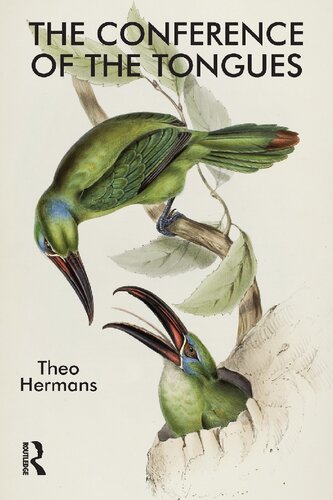

Most ebook files are in PDF format, so you can easily read them using various software such as Foxit Reader or directly on the Google Chrome browser.
Some ebook files are released by publishers in other formats such as .awz, .mobi, .epub, .fb2, etc. You may need to install specific software to read these formats on mobile/PC, such as Calibre.
Please read the tutorial at this link. https://ebooknice.com/page/post?id=faq
We offer FREE conversion to the popular formats you request; however, this may take some time. Therefore, right after payment, please email us, and we will try to provide the service as quickly as possible.
For some exceptional file formats or broken links (if any), please refrain from opening any disputes. Instead, email us first, and we will try to assist within a maximum of 6 hours.
EbookNice Team

Status:
Available0.0
0 reviewsThe Conference of the Tongues offers a series of startling reflections on fundamental questions of translation. It throws new light on familiar problems and opens up some radically different avenues of thought. It engages with value conflicts in translation and the social accountability of translators, and turns the old issue of equivalence inside out. Drawing on a wealth of contemporary and historical examples, the book teases out the translator's subject-position in translations, makes notions of intertextuality and irony serviceable for translation studies, tries to think translation without transformation, and uses a controversial sociological model to cast a cold eye on the entire world of translating.
This is a highly interdisciplinary study that remains aware of the importance of theoretical paradigms as it brings concepts from international law, social systems theory and even theology to bear on translation. Self-reference is a recurrent theme. The book invites us to read translations for what they can tell us about translating and about translators' own perceptions of their role. The argument throughout is for more self-reflexive translation studies.